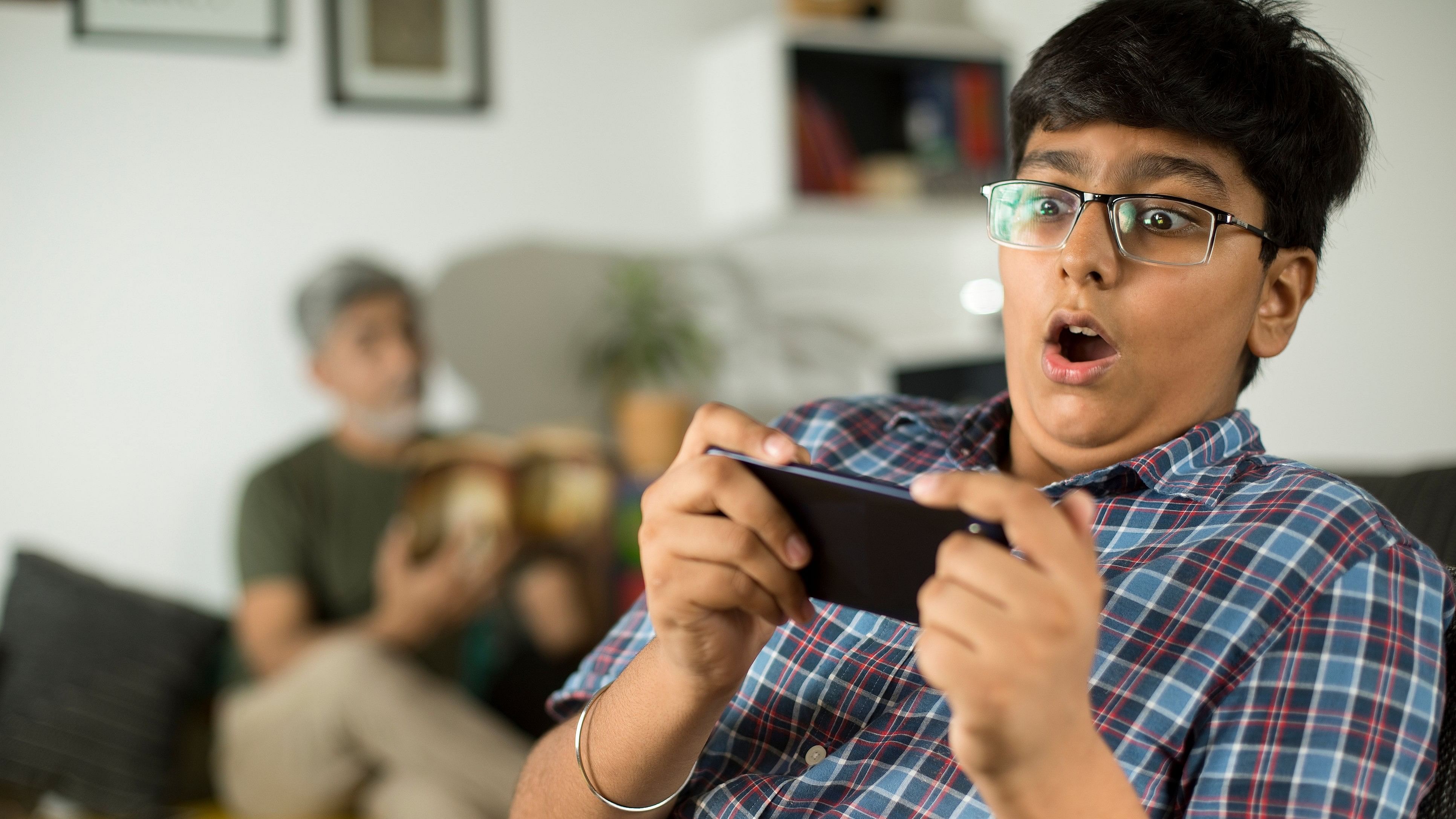
Pic for representation
Credit: iStock
Parental supervision can reduce the risk of gaming addiction among adolescents to a significant extent, say mental health professionals.
They say due to unmonitored access to digital devices, teenagers often end up playing games that are either age-inappropriate or problematic by nature.
Just this week, an online gaming publication wrote about a simulation challenge that requires a player to be a troublemaker. The tasks listed include insulting your classmates, getting suspended from school, and having a poor relationship with one’s parents. It is meant for adolescents above 17.
Child and adolescent psychologist Hannah Awayz says such a challenge is worrying because besides being perversive, it exploits vulnerable teenagers.
“Defiance is a big part of the teenage years. Teenagers find such games instantly appealing and also find support from their peer groups to do such ‘dares’. But they may not have the ability to gauge the repercussions of such games,” she explains.
Many games feature violence, foul language and sexually explicit content. Experts warn that these can negatively impact a child’s behaviour in real life. Dr Manoj Kumar Sharma says not all children get addicted to games, and a lot of this is tied to parental involvement and support in their lives. The professor of clinical psychology heads Shut Clinic, a technology de-addiction centre by Nimhans.
He says, “We have seen some common traits among children who show high dependency on gaming. It includes novelty-seeking behaviour, impulsive attitude, feeling neglected at home and the desire to escape reality. In a 2012 study, we saw that children from dual-income, single-child families were more prone to long hours of gaming than those who lived in joint families.”
Dr Arun Kumar V, consultant psychiatrist at Cadabams Hospital, used to see 3 to 4 such cases in a month five years ago. Now, the frequency has risen to 1 to 3 cases per week. The 12-18 age group (including girls) is getting hooked to aggressive games like first-person shooter video games, he says.
Signs to watch out for
*Abrupt change in behaviour. For instance, if children become too aggressive, defiant or quiet.
*Sudden decline in academic performance.
*Withdrawal from friends.
What parents should do
*Activate parental controls on digital devices.
*Limit children’s screen time and offer alternatives like reading or playing board games.
*Inculcate trust in children that they can speak to them without fear or judgement.
*Stay in touch with school counsellors.
(Shared by the experts interviewed for the article)
Need help?
Nimhans runs a digital detox helpline, 94808 29675, 9.30 am to 1 pm on Friday.
Outpatient and inpatient counselling is available on Tuesday, Friday and Saturday at Shut Clinic, Nimhans Centre for Wellbeing, BTM Layout. Write to shutclinic@gmail.com